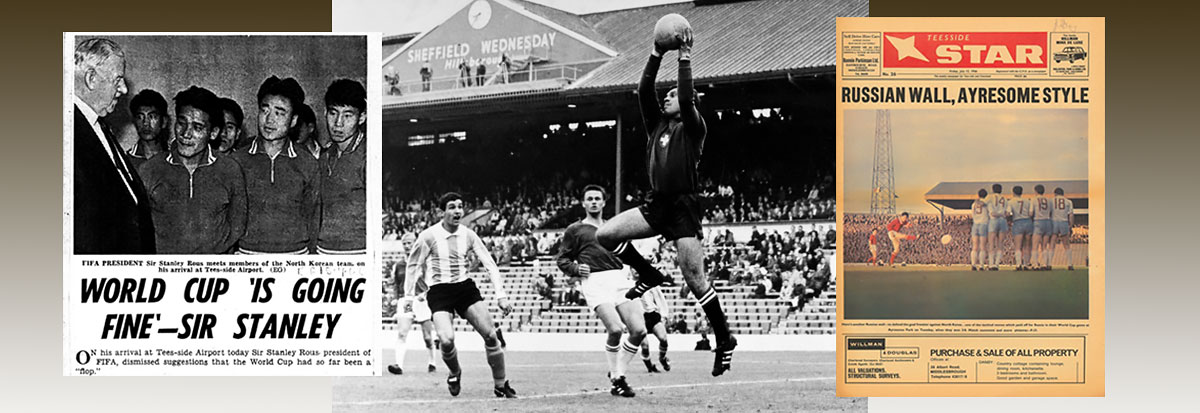Research by a University of Huddersfield historian compares the build-up to Russia 2018 with England’s own hosting of the games in 1966
AS millions across the globe turn attention to Russia as the host nation of the FIFA World Cup 2018, research by a University of Huddersfield historian reveals a number of comparisons between the build up to one of the most controversial tournaments in history and England’s hosting of the Finals in 1966.
Dr Tosh Warwick, a Lecturer in History, has written an article entitled ‘Apathy, hooliganism and bleak provincial towns: Russia 2018 and England 1966’, published by History Workshop Journal Online.
He reveals the anxieties, apathy and fears of hooliganism ahead of this year’s tournament echo a number of the concerns and moral panics that dominated front and back pages in the lead up to England’s World Cup triumph.
Published as the first in a series of World Cup specials, the article explores numerous themes including the diplomatic problems posed by North Korea’s qualification for the tournament, draws comparisons between the apprehension of those arriving in Moscow, Rostov-on-Don and “the unlikely World Cup City” of Saransk to those of Swiss fans who descended on Sheffield, and the Soviets who landed in Sunderland.
The research draws upon an extensive range of historical material including digitised online newspaper databases, Middlesbrough Libraries newspaper cuttings, official tournament records from Sheffield Local Studies Library and promotional material and council records from the collections of Teesside Archives.
By delving into the historic records the article reveals that despite concerns echoing those in the lead up to Russia 2018 regarding accommodation, threats of violence, and the lack of appeal of host cities such as Rostov-on-Don and Saransk, many of the concerns in the lead up to the 1966 tournament proved to be unfounded and the less favoured provincial centres disproved many of the negative perceptions.
Dr Warwick explains not only did hosting the tournament lead to international praise of Sheffield, but the North Korean’s surprise success in defeating Italy at Middlesbrough’s Ayresome Park led to lasting and unlikely international bonds between Teesside and Pyongyang that have endured into the twenty-first century.
“The lead up to Russia 2018 has been dominated by negative portrayals of lesser-known host cities and international panic at the prospect of hooliganism and diplomatic fall out surrounding the tournament,” said Dr Warwick.
“By looking to history and the build-up to England 1966 it is clear that many of today’s concerns are similar to those expressed in policy and press some five decades ago.
“Hopefully many of the anxieties and apathy leading up to the World Cup Finals this month will prove to be unfounded and the tournament can lead to football supporters discovering new cultures and forming international bonds akin to the experiences in places such as Middlesbrough and Sheffield during the 1966 World Cup Finals,” he said.
- You can find out more information on the History Workshop Journal Online by visiting their website
Related news stories
Predicting the Fall of Anne Boleyn
Historian uncovers the prophecy that encouraged Thomas Cromwell to engineer Queen Anne’s downfall
Historian offers comment on Margaret of Anjou
Dr Katherine Lewis appeared BBC Radio 4 In Our Time programme about the life and reputation of Henry VI’s queen, Margaret of Anjou
Romanies/Gypsies culture and history exhibition
Dr Jodie Matthews is curating the exhibition of Romani/Gypsy people at the Brotherton Gallery, which runs to 31 July

